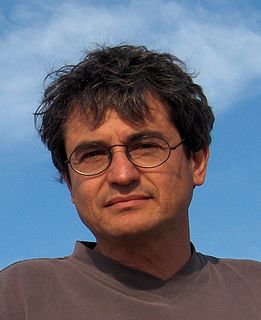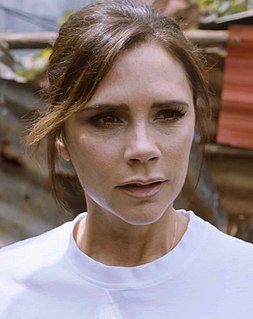A Quote by George M. Church
Neanderthals might think differently than we do. We know that they had a larger cranial size. They could even be more intelligent than us. When the time comes to deal with an epidemic or getting off the planet or whatever, it's conceivable that their way of thinking could be beneficial.
Related Quotes
Once we admit that there is room for newness - that there are vastly more conceivable possibilities than realized outcomes - we must confront the fact that there is no special logic behind the world we inhabit, no particular justification for why things are the way they are. Any number of arbitrarily small perturbations along the way could have made the world as we know it turn out very differently.
For instance, on the planet Earth, man had always assumed that he was more intelligent than dolphins because he had achieved so much—the wheel, New York, wars and so on—whilst all the dolphins had ever done was muck about in the water having a good time. But conversely, the dolphins had always believed that they were far more intelligent than man—for precisely the same reasons.
Danger comes in many forms, I suppose. For some people, it might be jumping off a bridge or climbing impossible moutains. For others, it could be a tawdry love affair or telling off a mean-looking bus driver because he doesn't like to stop for noisy teenagers. It could be cheating at cards or eating a peanut even though you're allergic. For me, danger might be getting out from the protective cloak of my family and venturing into the world more of my own, even though I don't know what- or who- awaits me.
What I advocate for is that, as soon as we get to the point when artificial intelligence can take off and be as smart, or even 10 times more intelligent than us, we stop that research and we have the research of cranial implant technology or the brainwave. And we make that so good so that, when artificial intelligence actually decides - when we actually decide to switch the on-button - human beings will also be a part of that intelligence. We will be merged, basically directly.
Parenting forces us to get to know ourselves better than we ever might have imagined we could--and in many new ways. . . . We'll discover talents we never dreamed we had and fervently wish for others at moments we feel we desperately need them. As time goes on, we'll probably discover that we have more to give and can give more than we ever imagined. But we'll also find that there are limits to our giving, and that may be hard for us to accept.
...But nature does not say that cats are more valuable than mice; nature makes no remark on the subject. She does not even say that the cat is enviable or the mouse pitiable. We think the cat superior because we have (or most of us have) a particular philosophy to the effect that life is better than death. But if the mouse were a German pessimist mouse, he might not think that the cat had beaten him at all. He might think he had beaten the cat by getting to the grave first.




































